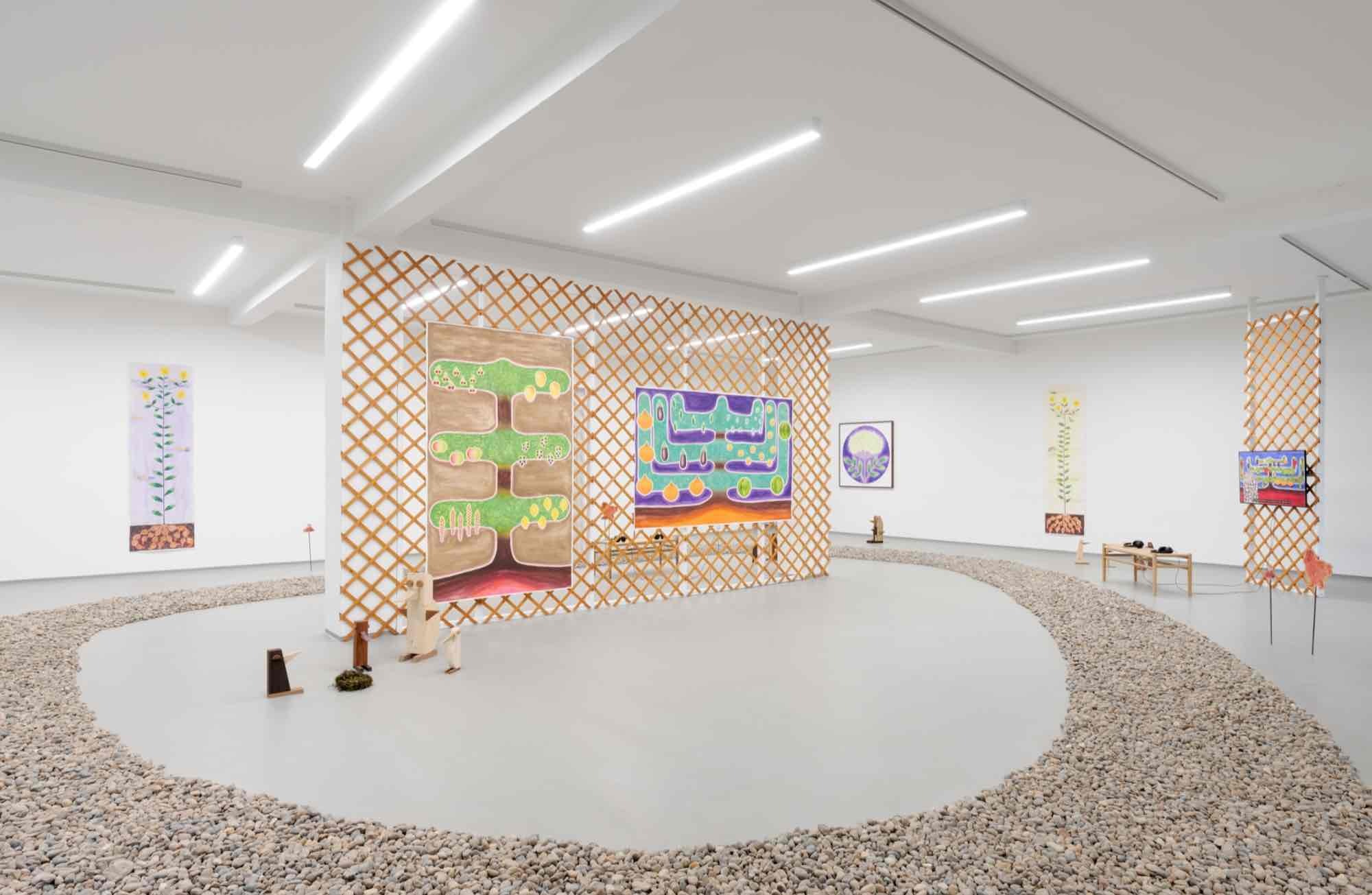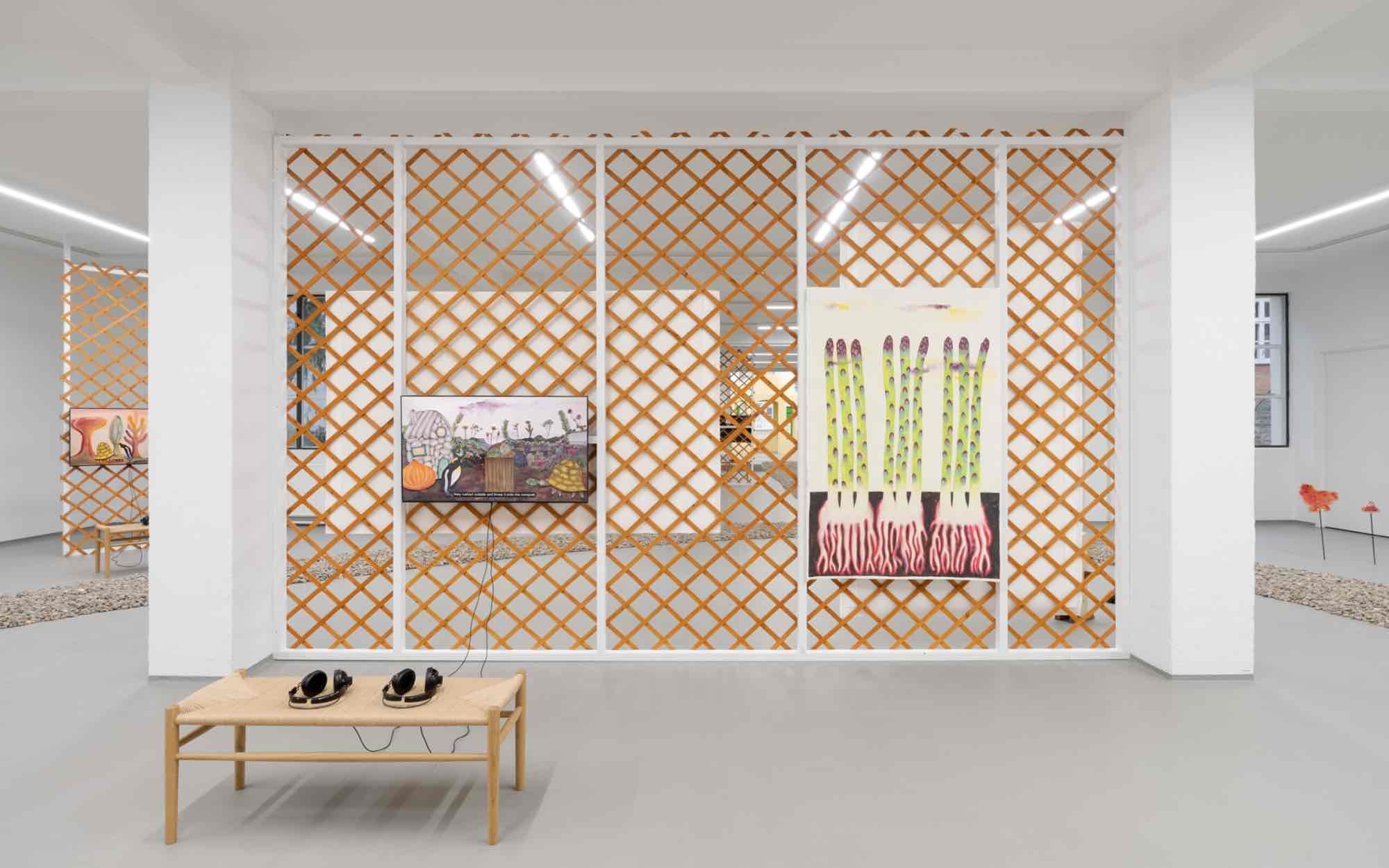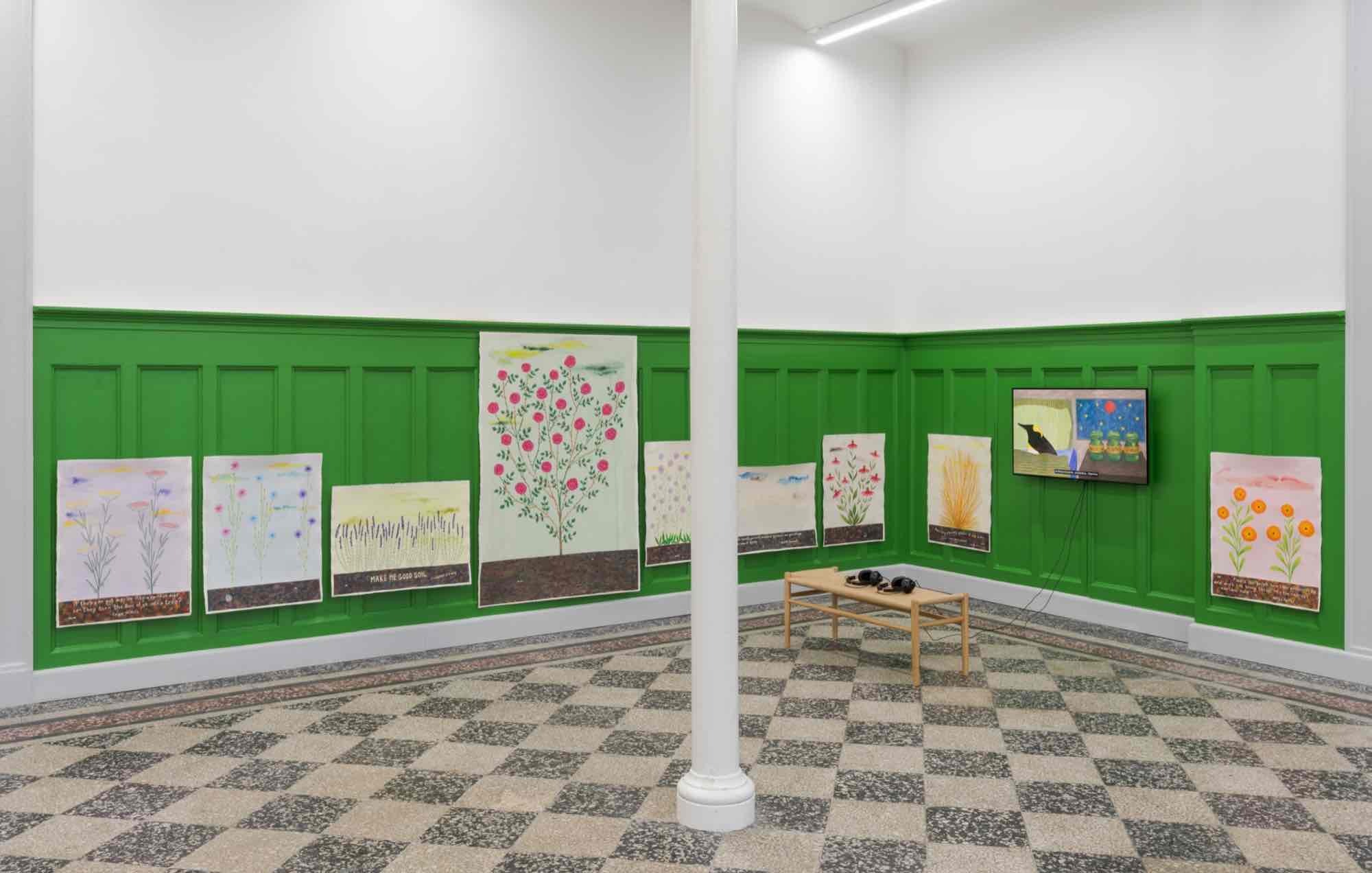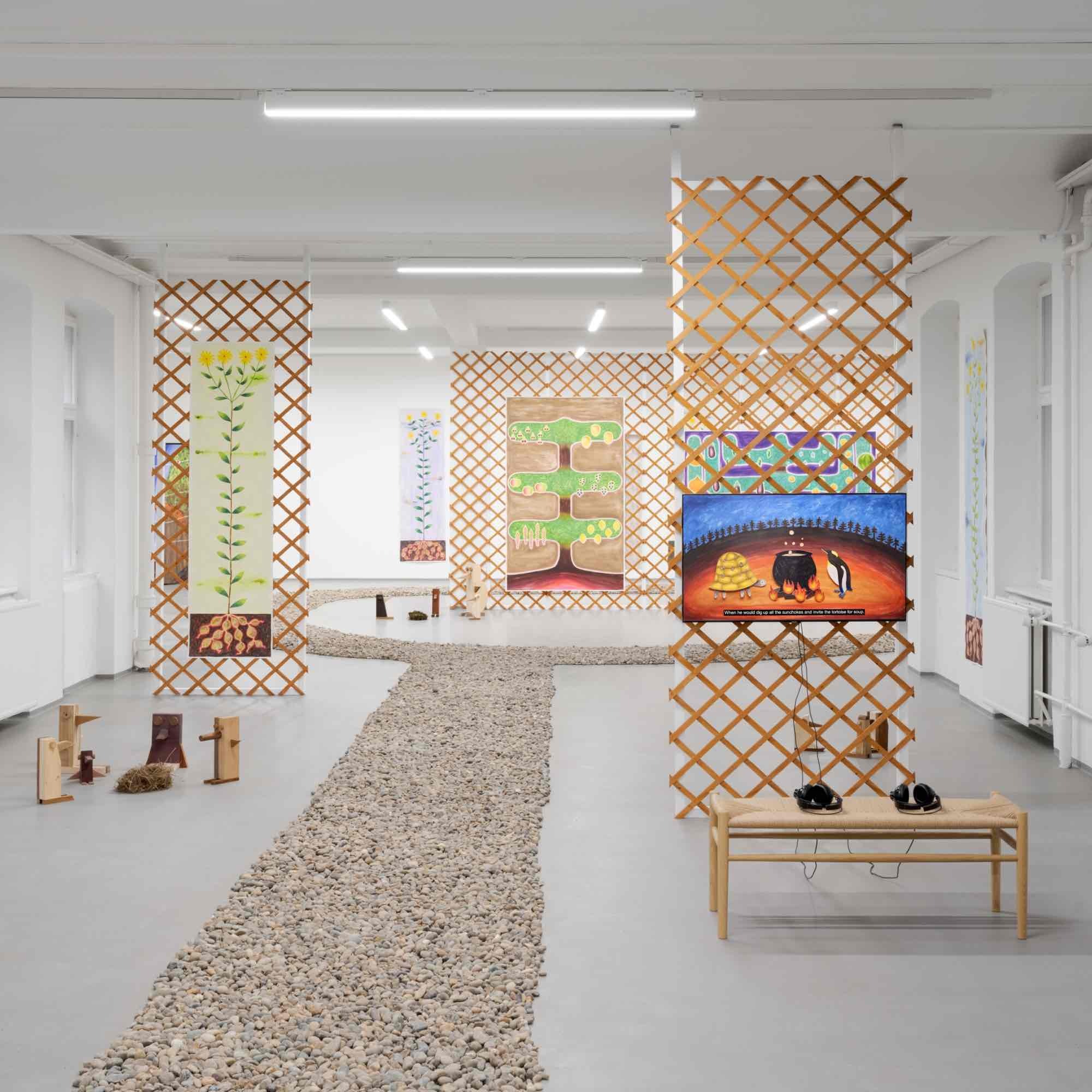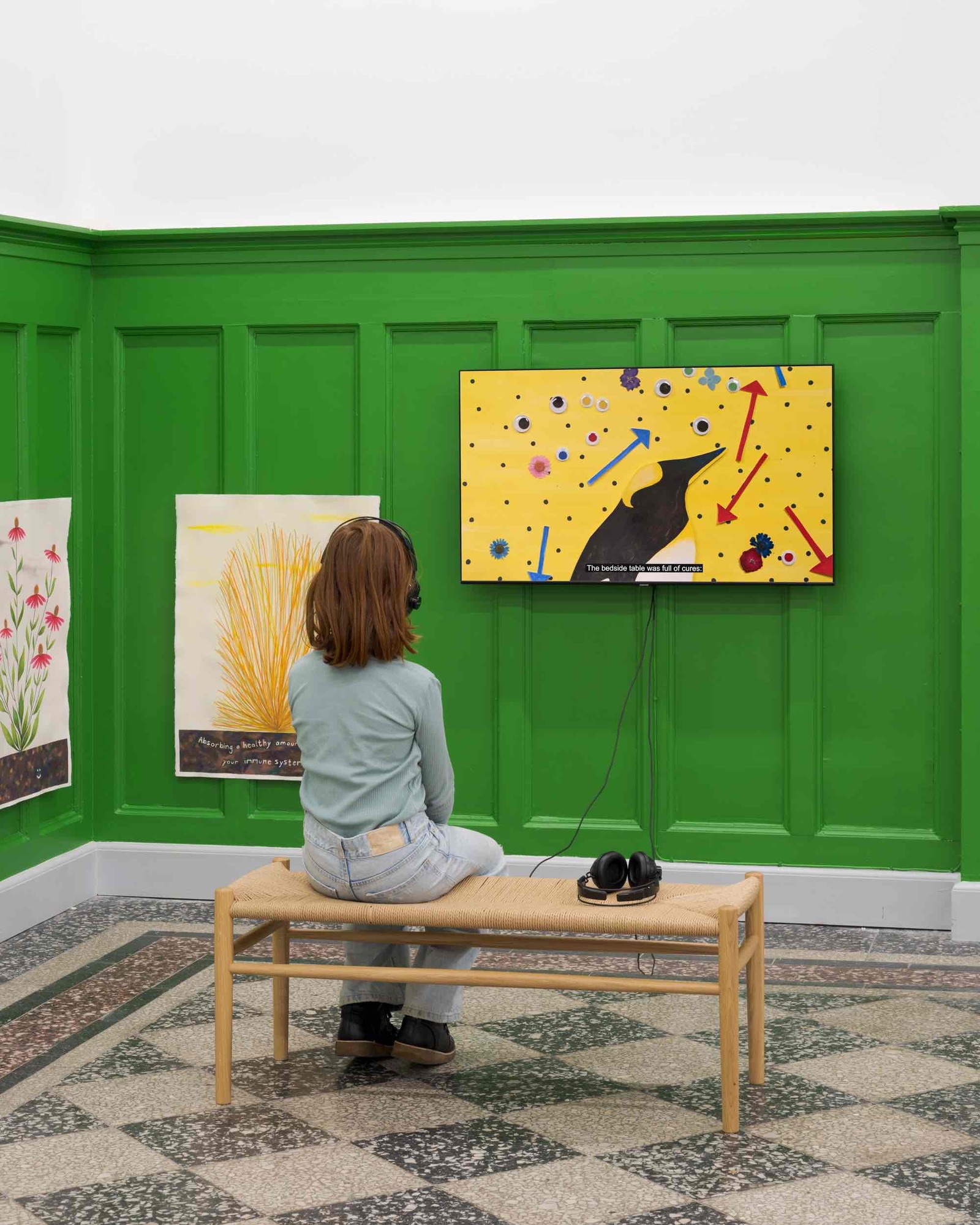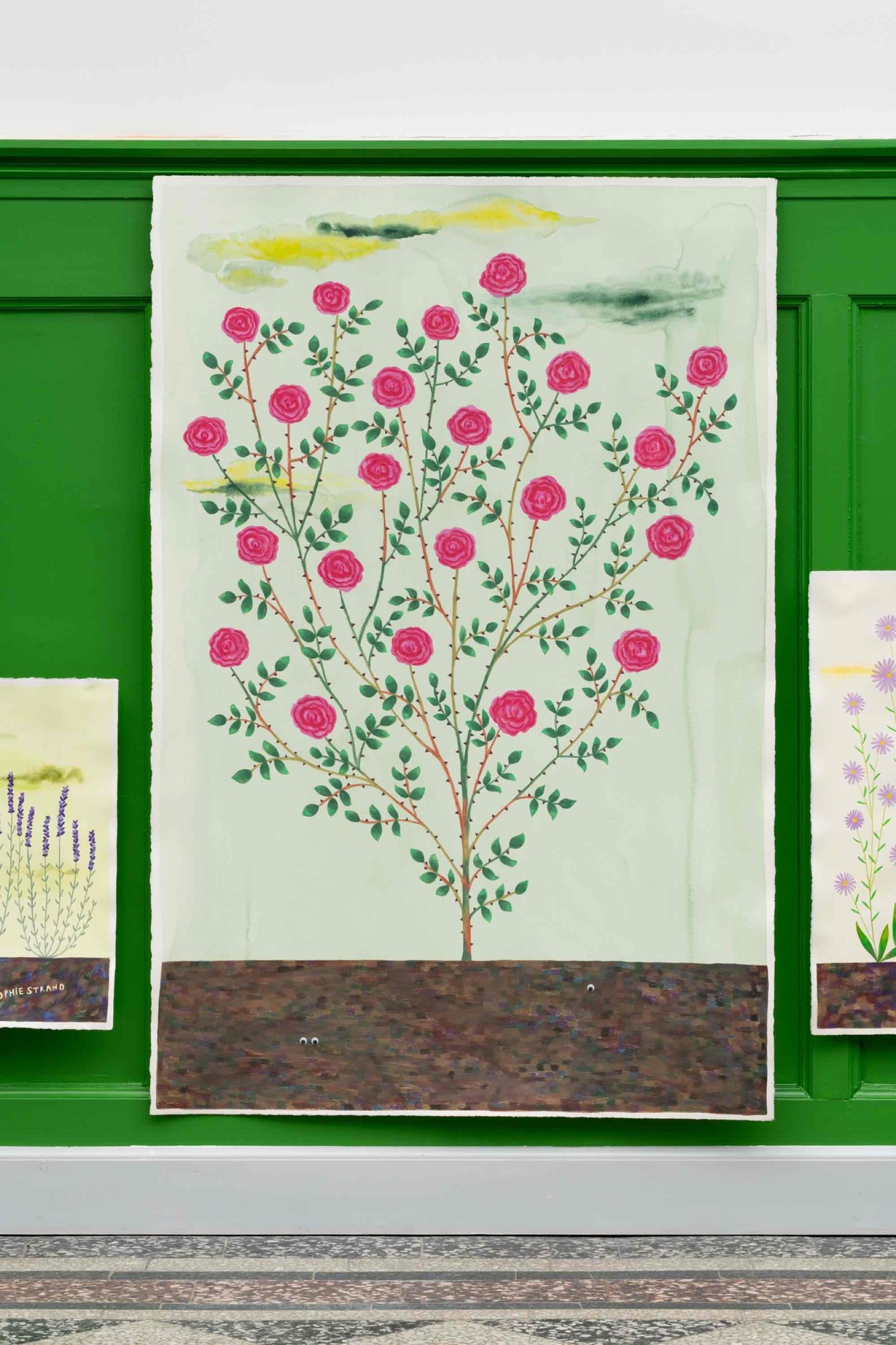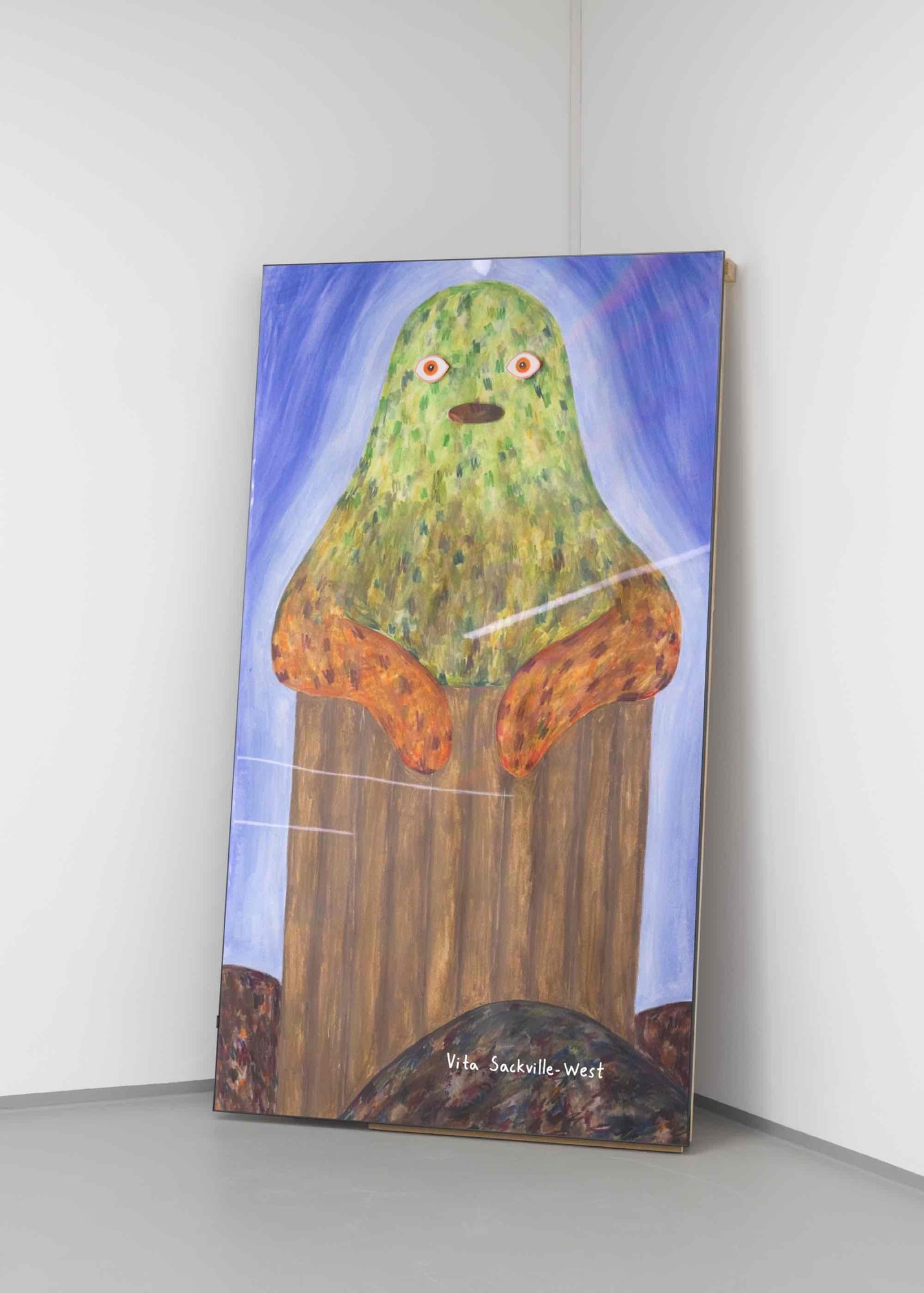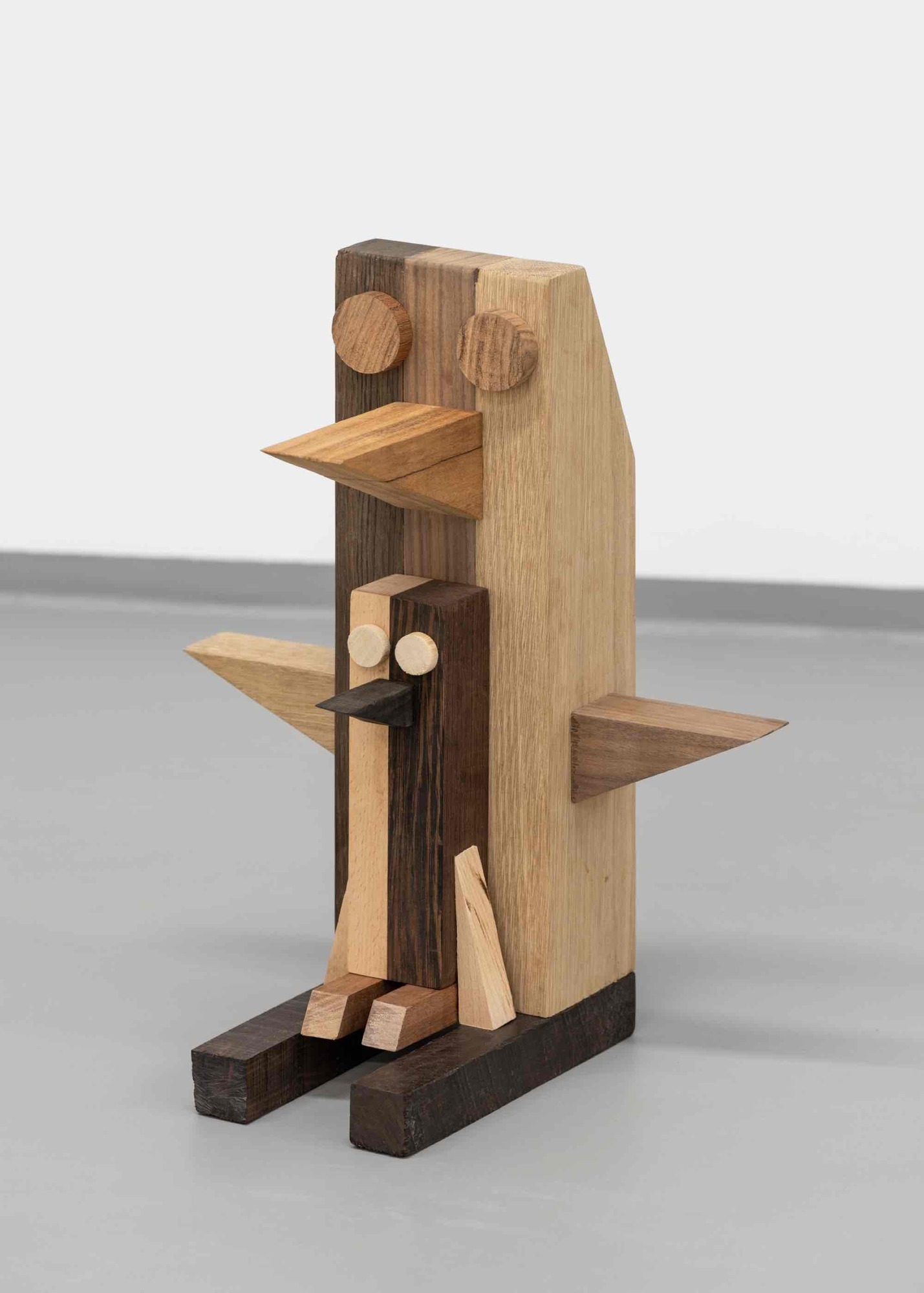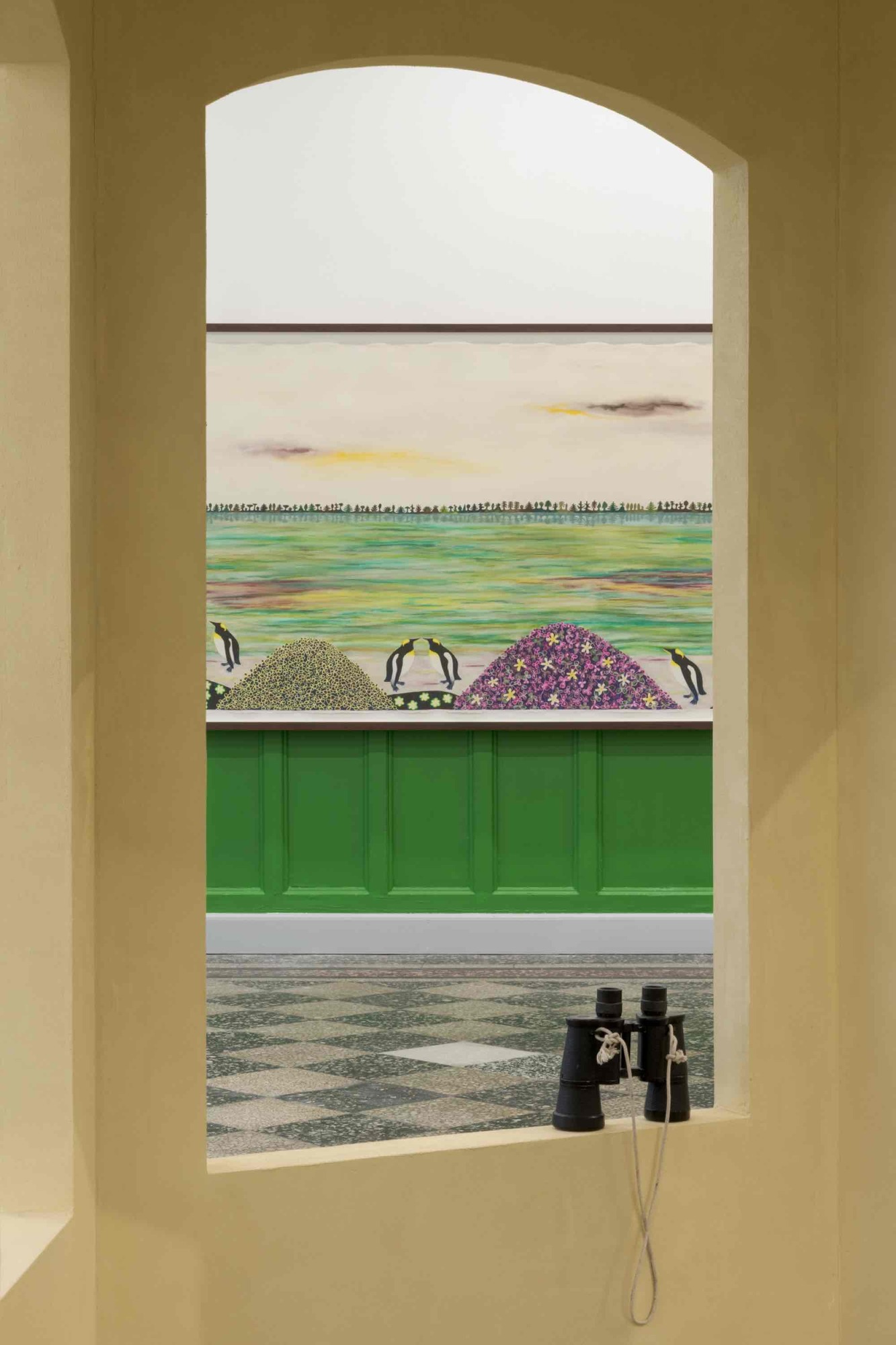Anna Sofie Mathiasen
Folly
25 Nov 2023 - 28 Jan 2024
The quest to translate questions of mental and environmental health into animation, drawing, and sculpture sits at the core of the young Danish artist Anna Sofie Mathiasen’s exhibition at O—Overgaden. Loosely referencing Cirkeline or the Swiss animation Pingu and the “pedagogical” narration of gardening TV programs, Mathiasen has created a series of four new stop-motion films.
Each between one and four minutes long, the shorts tell the story of a depressed penguin who watches gardening shows on the couch, attempting to work through the depression by, among other things, seeking therapy, gardening, composting, and in the end buying a piece of land with its tortoise friend. Just like the animation’s main character, voiced by Kaya Wilkins (also known as Okay Kaya), Mathiasen does the same with this exhibition: she constructs a garden.
The show garden Mathiasen has created includes a stone path through autility garden at one end of the exhibition, full of espaliers or trellises, drawn sunchokes and elderflowers (said to repel evil spirits when placed in corners) alongside an animation of a compost heap (collecting, composting, and thus recycling quotations on gardening and mental health). At the exhibition’s other end blossomsan ornamental garden centered on a pavilion or folly—lending its name tothe show: Folly. “Folly” means foolishness or wrongdoing, as well as adecorative pavilion with no practical purpose. In this case, the folly is based on a real-life pavilion built by the artist’s grandfather for the Danish gallerist couple, the Asbæks. For the exhibition, it was redrawn by the artist’s mother and rebuilt by her father. Mathiasen’s gardening thus returns to the social ecosystems of friendships and family, while recalling childhood memories and tropes of the garden as a healing place forphysical and mental illness.
Alongside references to private and public gardens, including Mathiasen’s own efforts through which she managed her mental health—and (in folly) threw sunchokes in the compost, only to have them take over her whole garden—the exhibition is also a nod to the gardens of the psychiatric ward Dikemark outside Oslo,the artist’s current home city. As the story goes, around 1930, a psychiatrist brought penguins to amuse the patients, but the animals soon died. This motif—both silly (a folly) and tragic—inspired the starring role of Mathiasen’s animation. Moreover, it prompted the artist to revisit a childhood pastime of building DIY wooden penguins with her dad. The resulting figures now populate the show’s garden alongside abandoned birds’ nests and decorative chicken garden stakes based on childhood drawings. Collectively the plural elements encapsulate the absurdist contradictions of the garden where both the uncontrollable wilderness and the well-groomed beds contain cyclical paths of healing.
Each between one and four minutes long, the shorts tell the story of a depressed penguin who watches gardening shows on the couch, attempting to work through the depression by, among other things, seeking therapy, gardening, composting, and in the end buying a piece of land with its tortoise friend. Just like the animation’s main character, voiced by Kaya Wilkins (also known as Okay Kaya), Mathiasen does the same with this exhibition: she constructs a garden.
The show garden Mathiasen has created includes a stone path through autility garden at one end of the exhibition, full of espaliers or trellises, drawn sunchokes and elderflowers (said to repel evil spirits when placed in corners) alongside an animation of a compost heap (collecting, composting, and thus recycling quotations on gardening and mental health). At the exhibition’s other end blossomsan ornamental garden centered on a pavilion or folly—lending its name tothe show: Folly. “Folly” means foolishness or wrongdoing, as well as adecorative pavilion with no practical purpose. In this case, the folly is based on a real-life pavilion built by the artist’s grandfather for the Danish gallerist couple, the Asbæks. For the exhibition, it was redrawn by the artist’s mother and rebuilt by her father. Mathiasen’s gardening thus returns to the social ecosystems of friendships and family, while recalling childhood memories and tropes of the garden as a healing place forphysical and mental illness.
Alongside references to private and public gardens, including Mathiasen’s own efforts through which she managed her mental health—and (in folly) threw sunchokes in the compost, only to have them take over her whole garden—the exhibition is also a nod to the gardens of the psychiatric ward Dikemark outside Oslo,the artist’s current home city. As the story goes, around 1930, a psychiatrist brought penguins to amuse the patients, but the animals soon died. This motif—both silly (a folly) and tragic—inspired the starring role of Mathiasen’s animation. Moreover, it prompted the artist to revisit a childhood pastime of building DIY wooden penguins with her dad. The resulting figures now populate the show’s garden alongside abandoned birds’ nests and decorative chicken garden stakes based on childhood drawings. Collectively the plural elements encapsulate the absurdist contradictions of the garden where both the uncontrollable wilderness and the well-groomed beds contain cyclical paths of healing.

